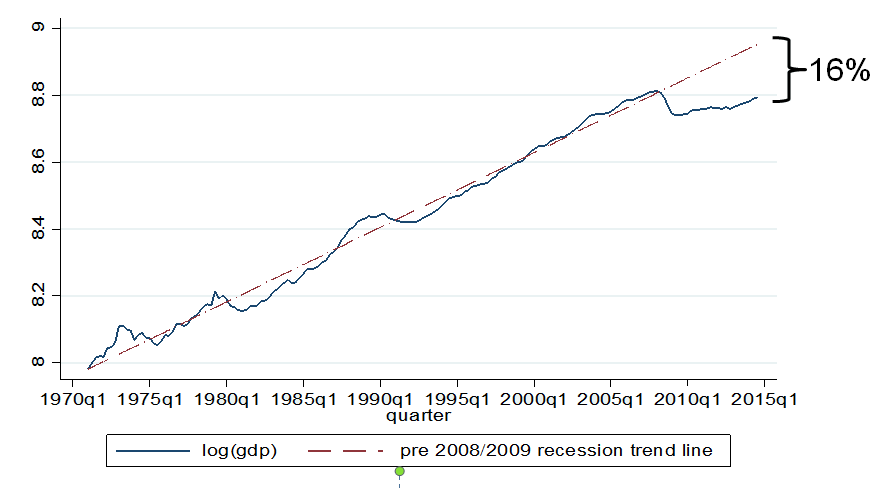The problem of currency union, UK edition
In my last post , I discussed Richard Murphy's " green QE " proposal in the context of a functioning currency union in which the decision to monetise debt would be made by the UK government. But the context of Richard's piece opens the door to a disturbing idea. Some Scottish Nationalists interpreted his proposal as meaning that a fully fiscally autonomous Scottish government could demand that the Bank of England buy Scottish government bonds (whether or not issued by a Scottish Development Bank) in order to prevent Scotland's debt/GDP rising as a consequence of infrastructure investment. The Scottish Nationalists who raised this possibility homed in on this part of Richard's piece: In March 2014 Bank of England Governor Mark Carney confirmed in a letter to Green MP Caroline Lucas that “It is possible that if the Monetary Policy Committee did vote to increase its asset purchases in future, it could expand the range of assets it purchased. Such a decision, ...
